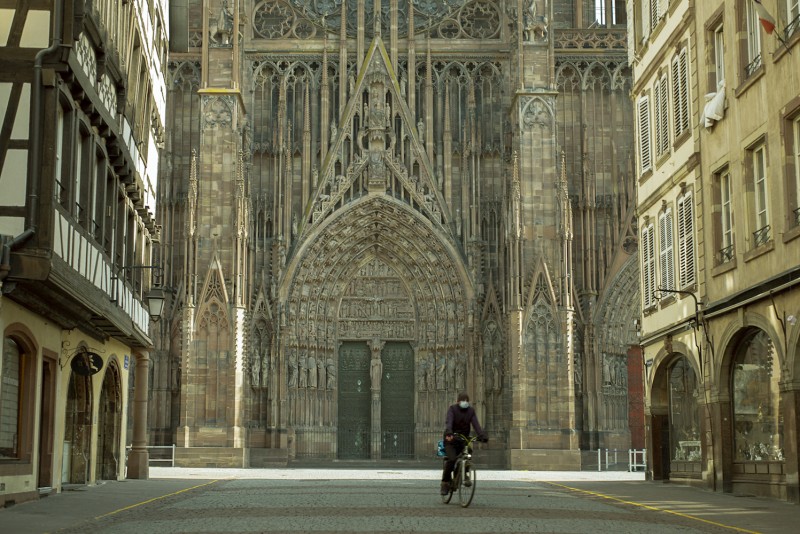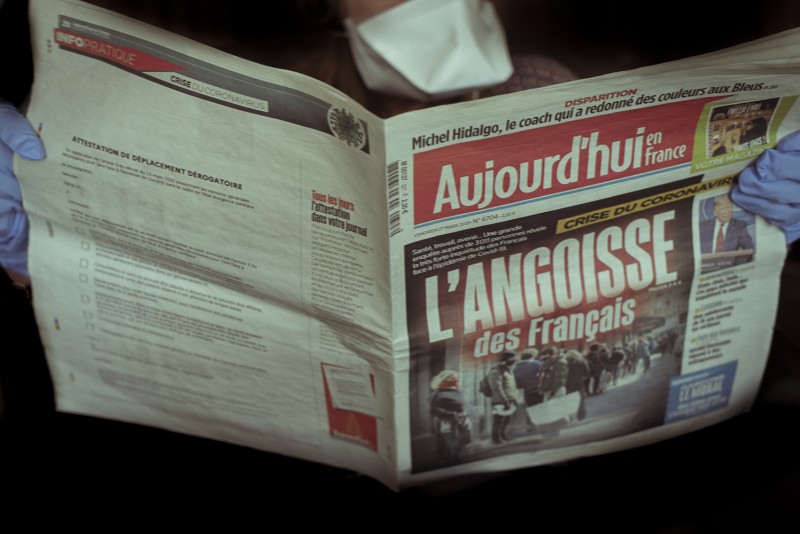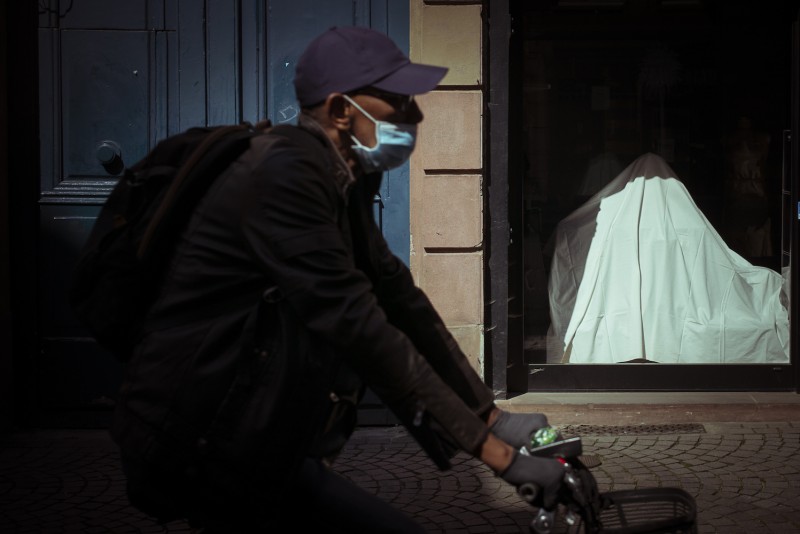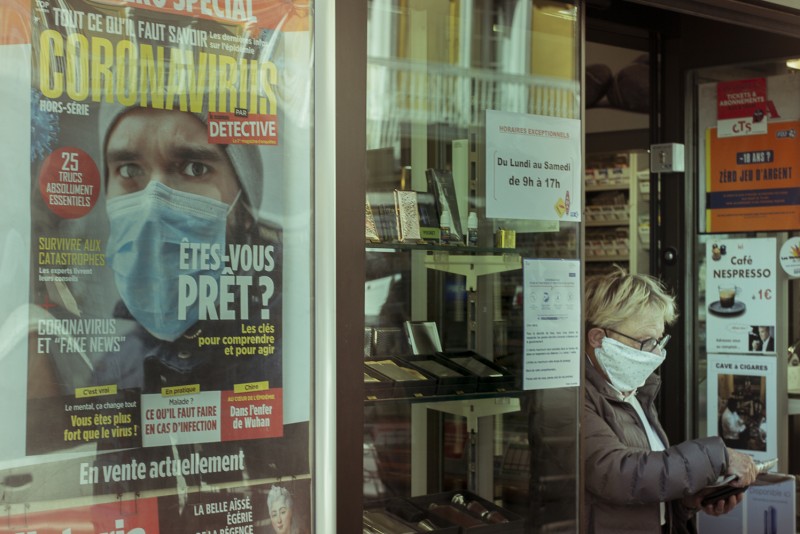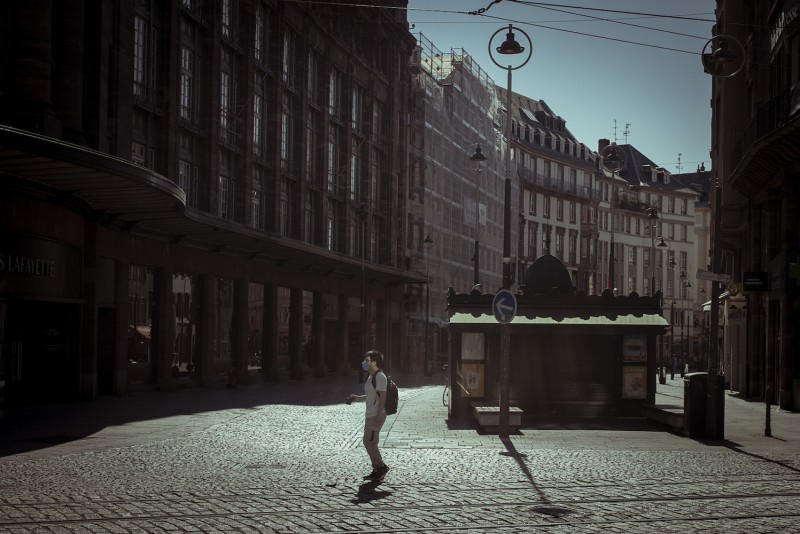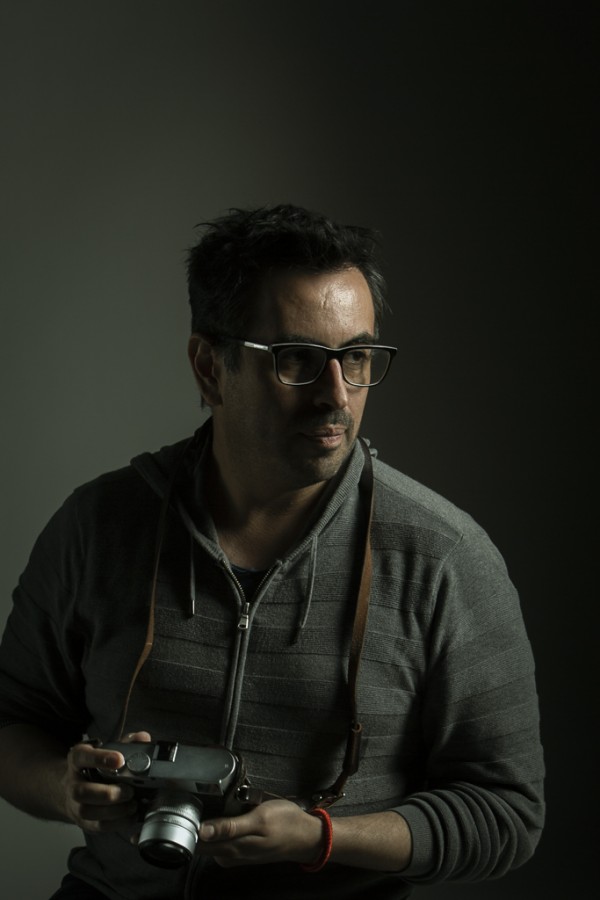Social Distancing in Strasbourg
Social Distancing in Strasbourg
Sebastián Pérez
May 11, 2020
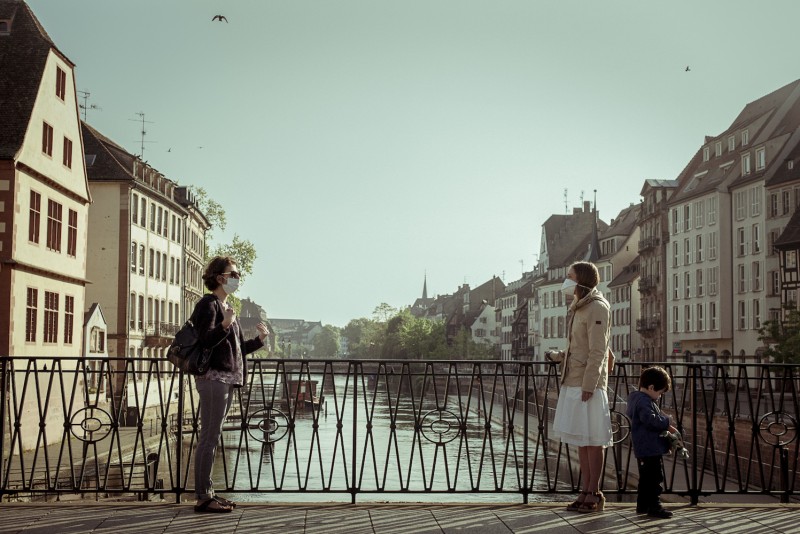
Sebastián Pérez: Strasbourg is a city that normally attracts many tourists from all over the world. It is, of course, known for its Christmas market, its cathedral, and the architectural style of its half-timbered houses. The cradle of European construction and a symbol of Franco-German post-war reconciliation, it also houses many European institutions. Strasbourg is a lively city, throughout the year, in summer and in winter. The tour boats follow one another along the river in an uninterrupted parade, and the little electric tourist trains can barely make their way through the hordes of tourists.
These constant crowds, familiar noises, and intense life suddenly stopped with the announcement of confinement on March 17, 2020. Strasbourg was transformed into a ghost town. City squares are deserted; parks, gardens, shops, terraces and other tourist attractions are closed down. A few people, with a traffic certificate, go to the so-called “essential” shops.
In what way did the current situation change your personal situation and your work as a photographer?
My personal life hasn't changed significantly. I’m grateful to be with my loved ones and in good health, unlike the thousands of people who enter the intensive care unit every day. The quarantine has provided me with more time to resume reading books that are necessary for my professional activity. I’ve also been able to work on the design of new projects. Specifically, the experience of this historic crisis has created a unique moment, to focus my work and my reflections on the deterioration of traditional social contacts, and on the social distancing we must live with today.
How do you feel about the future?
In addition to the political and economic consequences known to all, I think that many aspects of our lives will change. Before the crisis, we lived in a world where everything was progressing at high speed, undermining community life and solidarity. This forced pause has prompted many of us to rethink the world we live in. The development of telework could reduce the time spent travelling every day, and give us the chance to focus more on activities and relationships that we have neglected due to a simple lack of time. Thus, this crisis could provide a notable opportunity for us to change the way we think about the world we live in, and to recover that which makes us social beings.
Sebastián Pérez+-
Sebastián Pérez was born in Santiago de Chile on August 4, 1981. He studied and practiced medicine there for 10 years. He currently resides in France, where he studied at the Ecole Nationale Superieure de la Photographie in Arles. His main thematic area is photo reportage dealing with different aspects of life in today's society, with a strong focus on the human element. More

